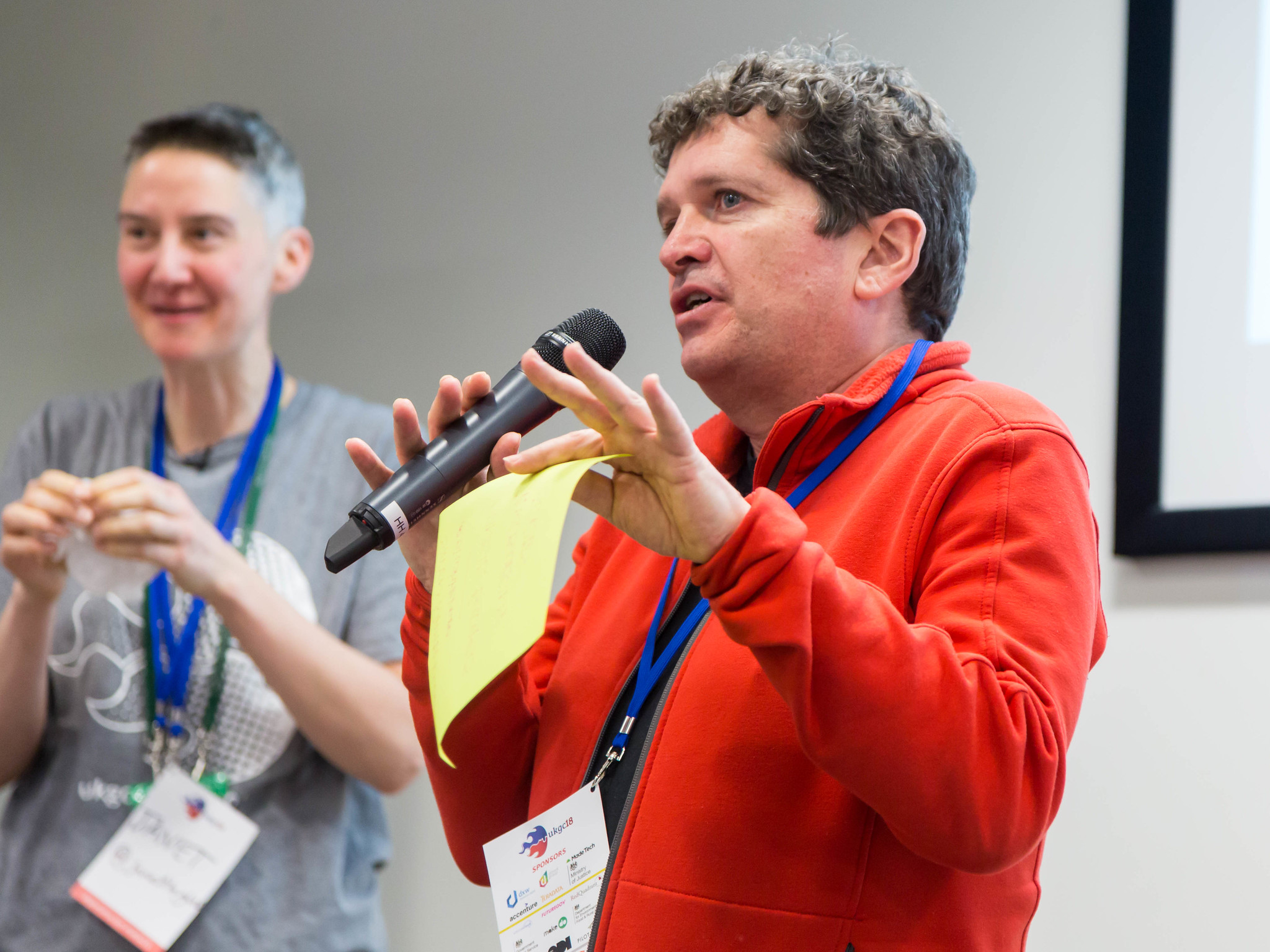
UKGovCamp Word Cloud
UKGovCamp 2018
Last Saturday I attended UK Gov Camp – an event for people interested in how the public sector makes the best uses of digital technologies. It has an open format, with the agenda decided by the participants. At the start of the day everyone has the chance to stand up and “pitch” their idea for a session.
Data Unlocked are going to be data partners for The Bureau Local‘s Big Council Budget Hack which is happening at five centres around the country on Saturday, 3rd February. So, I pitched a session to discuss council budgets and what attendees thought would be useful information for members of the public and journalists attending the hack day.
The raw session notes were taken by Graeme Jones from OpenMindly. I have adapted them below to include my thoughts and to focus on just three questions that were raised.
Is There Anything Left To Cut?
The strongest, and most worrying, message that I took away from the session was that we have reached a point at which councils can no longer cut services and still provide the statutory services that they are legally obliged to maintain.
There is a problem here, which is that at the start of austerity cuts most councils took the line that they were going to protect front-line services and cut back office jobs. Now, many of those front-line services need re-organising and there are not the staff with the expertise and experience to do this in the back office.
It is going to be helpful for attendees to know what the statutory duties for a local authority consist of. The Local Government Association provide a list of the services that local authorities have the power and the duty to provide.
How Are Decisions Made?
There was a lot of concern that decisions about cuts and savings were not going to be made in the best possible way. I certainly felt that when I left my local authority we were trying to meet the numbers needed to balance the books rather than removing roles in a strategic fashion. Other attendees felt the same. People spoke about flat 10% or 20% cuts across the board, for example.
One attendee said that when a new administration had come in they had restored some services that they were now reducing/removing again. It is hard to imagine that this style of reorganisation is an efficient one.
One particular concern here is when a cut to a service has a knock on effect on another service. This can be both within and outside the local authority. People can be stuck in a hospital bed because there is nowhere for them to go. So, a service not provided by a local authority can cause problems in the NHS.
How can people at the Big Council Budget Hack make these sort of connections? Can we find the links between cuts in transport budgets and adult social care, for example? I hope the service list can be one source of help, but I hope there are others.
How Are People Protecting Their Services?
John Sheridan works for the National Archive and he spoke about local authority records offices. They have explored a variety of different changes to the way they work, prompted by budget cuts. More than half have looked at external funding, many are charging for some of the work they do..
He gave an interesting example of Worcestershire, who have reorganised their service. They also have some commercial income and can now show that any further cuts would cost the council more money than if they keep their budget the same.
This does not make them completely safe, but they have developed a good argument here.
I think that some people coming to the Big Council Budget Hack are going to be involved in campaigns. Can we find more examples of ways that people are trying to protect their services?
Join Us At The Big Council Budget Hack
On Saturday, 3rd February there will be (at least) five Big Council Budget Hacks around the country. They will be in Manchester, Coventry, Leeds, Newcastle-Upon-Tyne and London. They are free to attend. If you’ve read this far then you must have enough interest to want to come along! G’wan.
Thanks
Many thanks to the attendees for making the session such a useful one.
Julia Berry – Labour & Co-operative Councillor for Chorley South, Graeme Jones (recorder) – Openmindly, Stephen Lorimer, Smart London Strategy and Delivery Officer, Greater London Authority John Sheridan – digital director at the National Archives, Alex – Grenfell response team for RBKC, Neil Reeder, Red Quadrant, Eddie Coates-Madden, – Sheffield (came later, black jacket)
Also thanks to Lucy Knight, Benjamin Taylor and whoever is behind the LGInform Twitter account for their help finding the statutory service list.

Leave a Reply